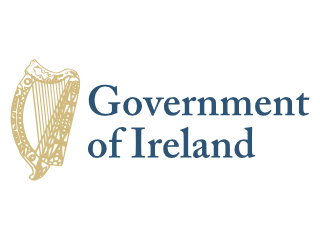Celtic tribes arrived on the island between 600 and 150 B.C. Invasions by Norsemen that began in the late 8th century were finally ended when King Brian BORU defeated the Danes in 1014. Norman invasions began in the 12th century and set off more than seven centuries of Anglo-Irish struggle marked by fierce rebellions and harsh repressions. The Irish famine of the mid-19th century saw the population of the island drop by one third through starvation and emigration. For more than a century after that the population of the island continued to fall only to begin growing again in the 1960s. Over the last 50 years, Ireland's high birthrate has made it demographically one of the youngest populations in the EU. The modern Irish state traces its origins to the failed 1916 Easter Monday Uprising that touched off several years of guerrilla warfare resulting in independence from the UK in 1921 for 26 southern counties; six northern (Ulster) counties remained part of the UK. Unresolved issues in Northern Ireland erupted into years of violence known as the "Troubles" that began in the 1960s. The Government of Ireland was part of a process along with the UK and US Governments that helped broker what is known as The Good Friday Agreement in Northern Ireland in 1998. This initiated a new phase of cooperation between the Irish and British Governments. Ireland was neutral in World War II and continues its policy of military neutrality. Ireland joined the European Community in 1973 and the euro-zone currency union in 1999. The economic boom years of the Celtic Tiger (1995-2007) saw rapid economic growth, which came to an abrupt end in 2008 with the meltdown of the Irish banking system. Today the economy is recovering, fueled by large and growing foreign direct investment, especially from US multi-nationals.
Ireland is a parliamentary republic.
Source: CIA World Factbook
Members:
Resources
Displaying 56 - 60 of 137European Union (Control of Major Accident Hazards Involving Dangerous Substances) (Revocation) Regulations 2015 (S.I. No. 208 of 2015).
These Regulations revoke the European Communities (Control of Major Accident Hazards Involving Dangerous Substances) Regulations 2006 as amended by the European Union (Control of Major Accident Hazards Involving Dangerous Substances) (Amendment) Regulations 2013, as part of the transposition of Directive 2012/18/EU “of the European Parliament and of the Council on the control of major-accident hazards involving dangerous substances, amending and subsequently repealing Council Directive 96/82/EC” into Irish law.
Planning and Development (Amendment) Regulations 2015 (S.I. No. 264 of 2015).
These Regulations amend the Planning and Development Regulations 2001 in provisions concerning pre-application consultation meeting to be organized by a local authority, at the written request of a person who intends to make an application for a licence under section 230 of the Planning and Development Act, 2000 (application for events). Prescribed bodies will be invited by local authorities to attend such pre-application consultation meetings.
European Union (Environmental Impact Assessment and Appropriate Assessment) (Foreshore) Regulations 2014 (S.I. No. 544 of 2014).
These Regulations amend the Foreshore Act 1933 for the purpose of giving effect in part to Council Directive No. 2011/92/EU. They amend section 13A which sets out the developments/activities that may require environmental impact assessment in relation to consents under the Act. Deep drilling within the scope of the Annex to the Directive. The Regulations also prevent double screening of environmental impact assessment in respect of a petroleum activity where a foreshore lease or licence is being sought.
European Union (Environmental Impact Assessment) (Planning and Development) Regulations 2014 (S.I. No. 543 of 2014).
These Regulations give further effect in Irish law to Article 3 of Directive No. 2011/92/EU of the European Parliament and of the Council on the assessment of the effects of certain public and private projects on the environment, They amend Part 2 of Schedule 5 of the Planning and Development Regulations 2001 to include all deep drilling within the scope of the Annex to the Directive. This Schedule sets out the developments/activities that may require environmental impact assessment in relation to consents under the Planning and Development Act 2000.
Energy (Miscellaneous Provisions) Act 2006 (section 28(4)) Regulations 2013 (S.I. No. 155 of 2013).
This Order provides that sections 69 to 83 of the Lands Clauses Consolidation Act 1845 shall, in accordance with subsection (4) of section 28 of the Energy (Miscellaneous Provisions) Act 2006 and without further modification, apply in all cases for the purposes of compulsory acquisition under the 2006 Act.
Implements: Lands Clauses Consolidation Act, 1845. (1845-05-18)
Implements: Energy (Miscellaneous Provisions) Act 2012 (No. 3 of 2012). (2012)


